Pop!_OS is developed by System76, a computer manufacturer specializing in producing Linux-powered laptops, desktops, and servers. It has been gaining popularity among the Linux community due to its interface, performance, and customization options. However, using a new operating system can sometimes be overwhelming, especially for beginners.
In this article, we will explore the Pop!_OS community and support resources available to help users navigate and troubleshoot their way through the system.
Pop!_OS history and features
Pop!_OS is a Linux-based operating system developed by System76, a computer manufacturer from Colorado. System76 began as a company that provided Linux machines, but they realized that the operating systems available at that time were not optimized for the hardware they were selling. As a result, they decided to create their own operating system, which led to the development of Pop!_OS.
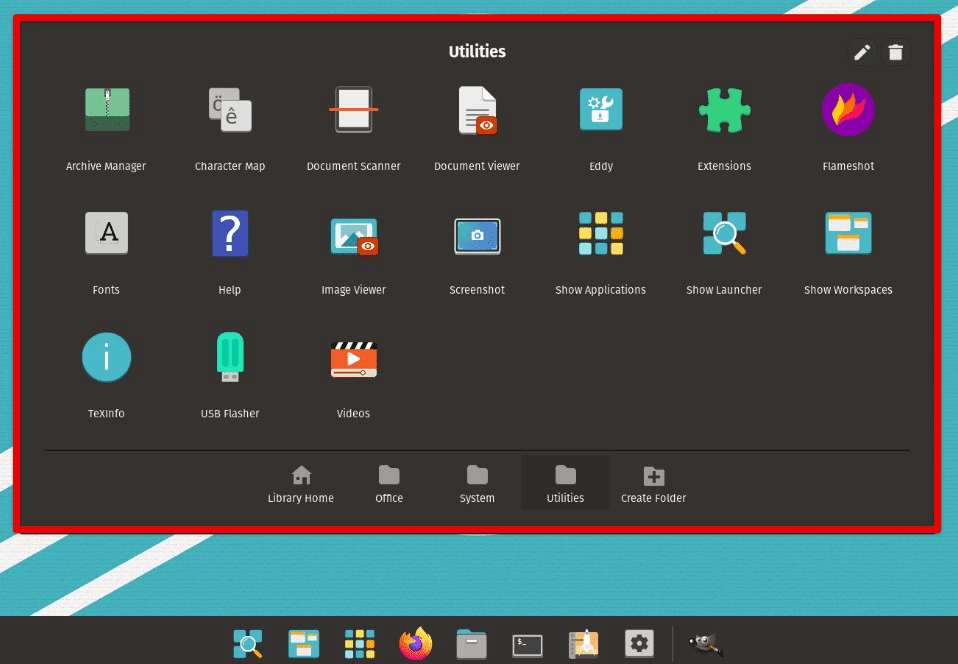
Pop!_OS history and features
This system is based on Ubuntu, one of the most popular Linux distributions, and it was first released in 2017. Since then, it has undergone several updates and improvements to enhance the user experience and support resources. One of the significant changes introduced in the operating system’s latest version is the new COSMIC desktop environment, which provides users with a more modern and intuitive interface.
Pop!_OS has plenty of features that make it stand out from other distributions. One of the most notable ones is the Pop!_Shop, an easy-to-use software center that lets you discover, install, and manage applications. Pop!_Shop is built on top of the Flatpak system, providing a secure and efficient way to package and distribute applications across different Linux distributions.
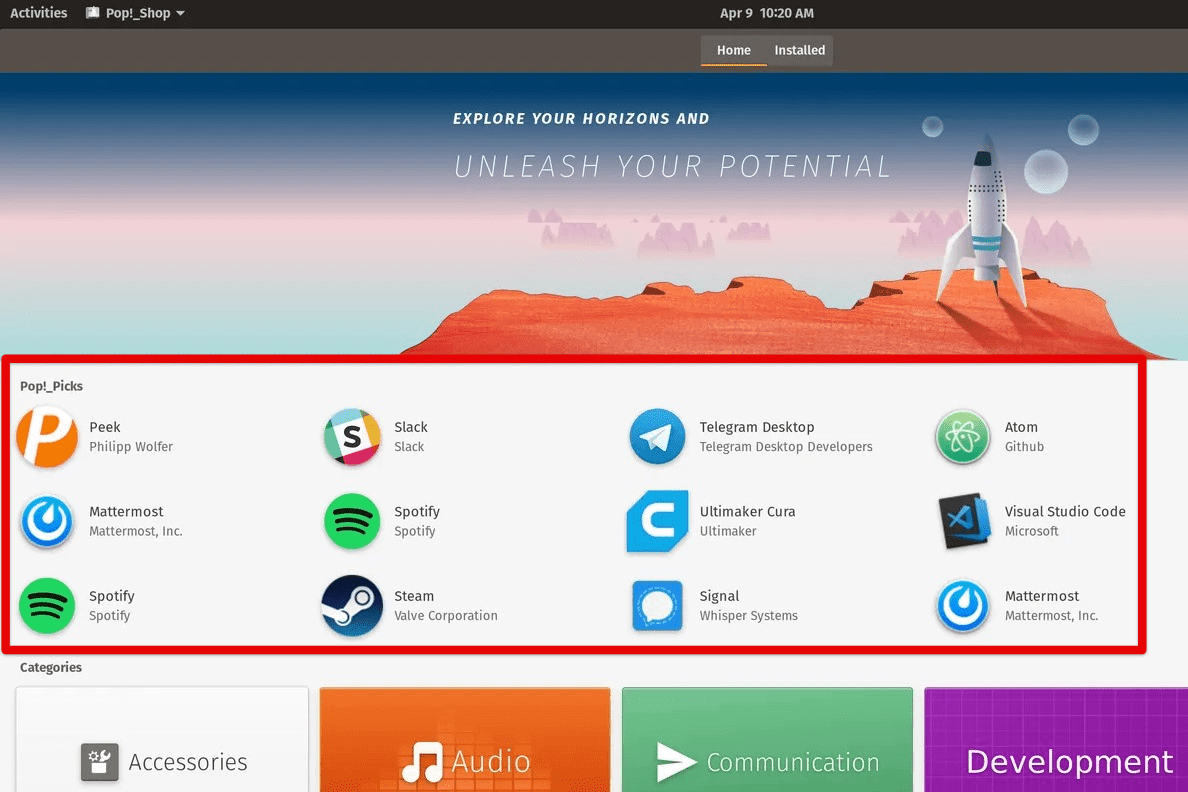
Pop!_Shop
Automatic graphics switching is also notable, which enables laptops with both integrated and discrete graphics cards to switch between these resources depending on the application’s needs. Doing so improves battery life and performance, especially for those who need to run graphics-intensive applications. Pop!_OS comes with various pre-installed tools for developers, including Git, Python, Ruby, and Node.js. It also supports popular programming languages and frameworks, such as Rust, Go, and .NET Core, making it an excellent choice for programmers and technologists alike.
Pop!_OS community
The Pop!_OS community is a group of users, developers, and contributors passionate about the system and its development. The community plays a vital role in shaping the future of this OS, providing support and resources to help others make the most out of their experience.
One of the most significant advantages of being part of the Pop!_OS community is the wealth of knowledge and expertise available. The community comprises individuals from diverse backgrounds and skill sets, from beginners to advanced users, developers, and Linux enthusiasts. This diversity allows for a broad range of perspectives and insights, making it easier for all to find solutions to their problems and learn from others.
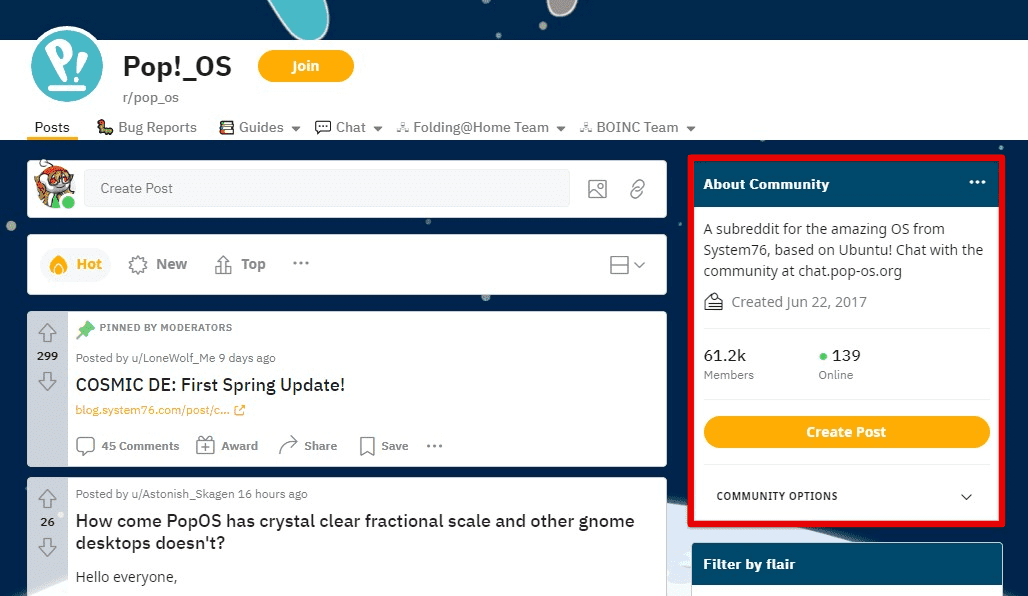
Pop!_OS community
The Pop!_OS community structure is hierarchical, with a core development team at the top. This team is responsible for the operating system’s maintenance and development, ensuring it remains up-to-date, secure, and stable. The development team coordinates with the broader Linux community to ensure that Pop!_OS remains compatible with the latest hardware and software.
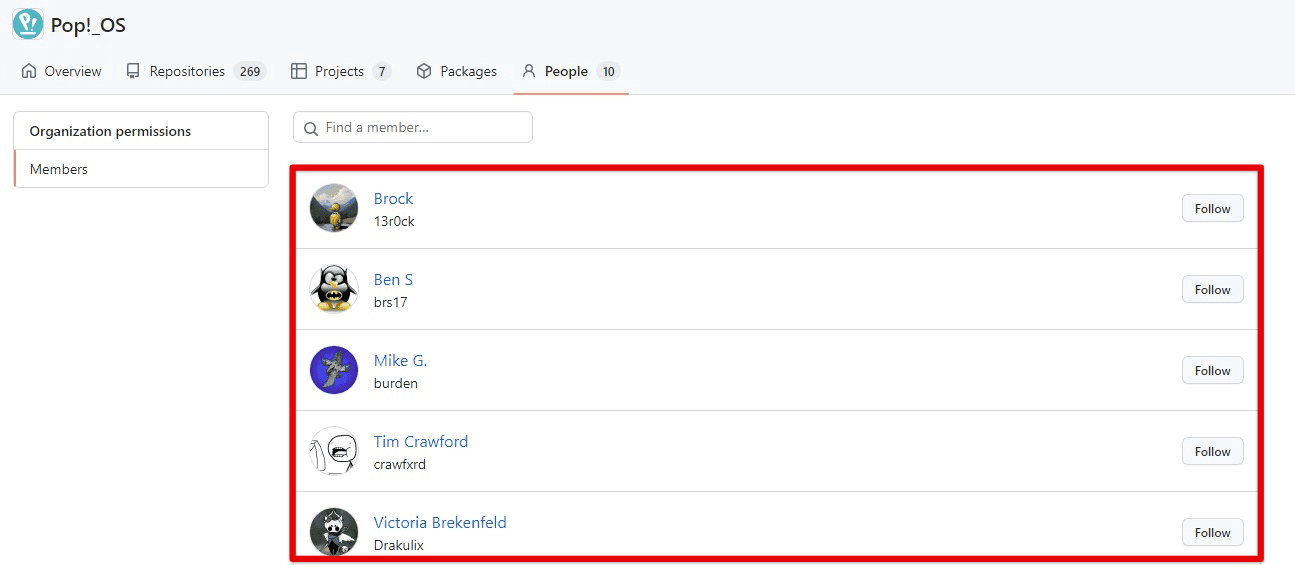
Pop!_OS core development team
Beneath the core development team are the contributors who help with the operating system’s development, documentation, and support. Contributors can take on various roles, such as packaging applications for the Pop!_Shop, writing documentation, providing support on forums and social media, and contributing code for system development.
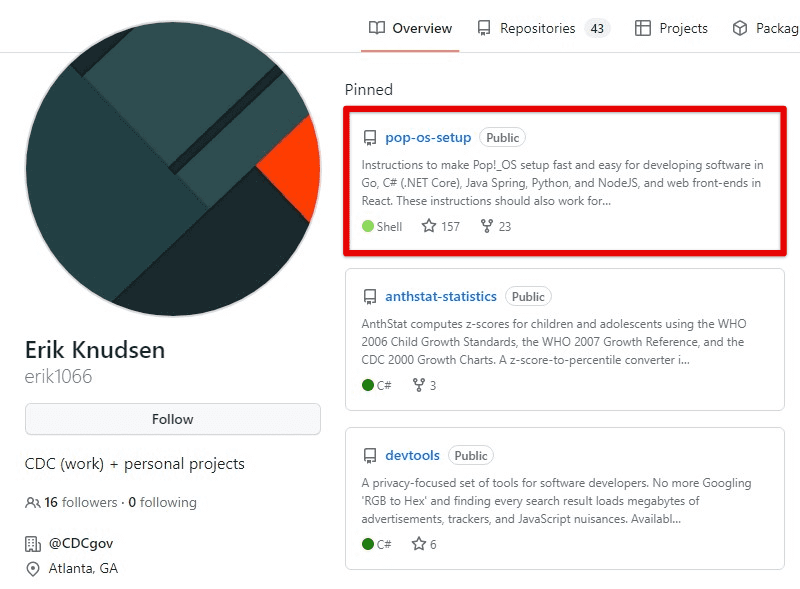
Pop!_OS contributors
Finally, at the bottom are the users, who make up the bulk of the Pop!_OS community. They can participate in the community by asking and answering questions on forums, sharing their experiences, providing feedback, and contributing to community-driven projects and initiatives.
Pop!_OS support resources
Pop!_OS provides many support resources to help users get the most out of their operating system. These resources include official channels, such as the knowledge base, documentation, and forums, as well as third-party resources like Reddit communities and social media groups.
The official Pop!_OS support channels are an excellent place to start for users looking for help with their system. The knowledge base is a comprehensive collection of articles and guides that cover various topics, such as installation, troubleshooting, and customization. It continuously updates and delivers step-by-step instructions and helpful tips to resolve multiple issues.
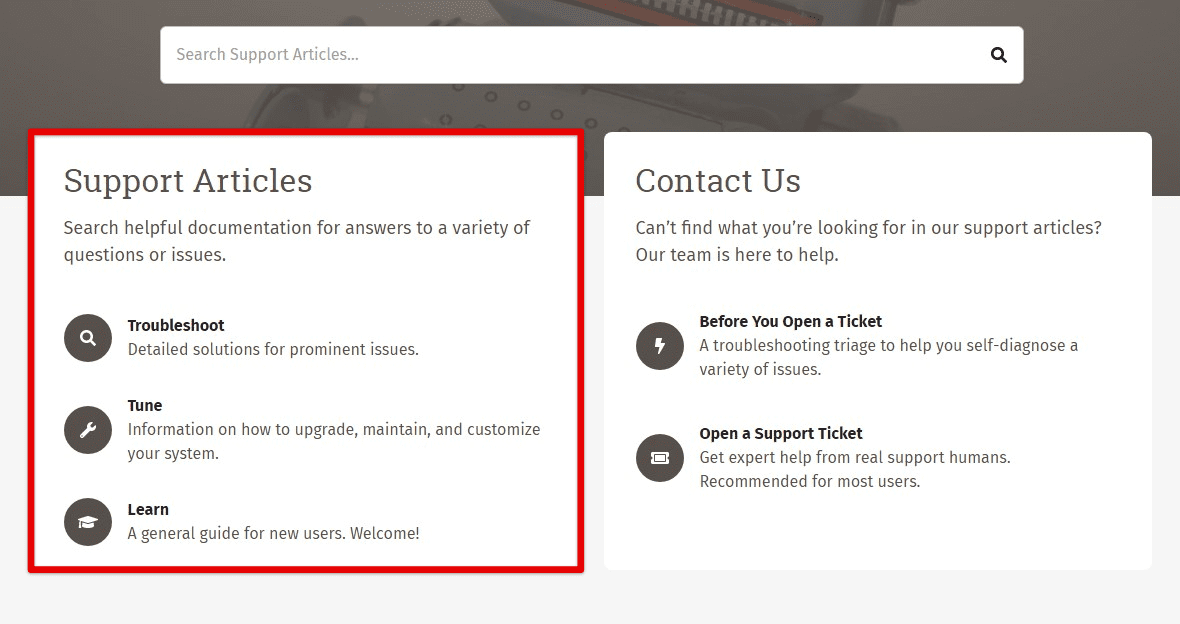
Official Pop!_OS support channels
System documentation is another valuable resource, providing detailed information about the operating system’s features, applications, and tools. The well-organized documentation makes it easy for users to find what they’re looking for. It also delivers information about the system’s architecture, development, and security that cannot be found anywhere else.
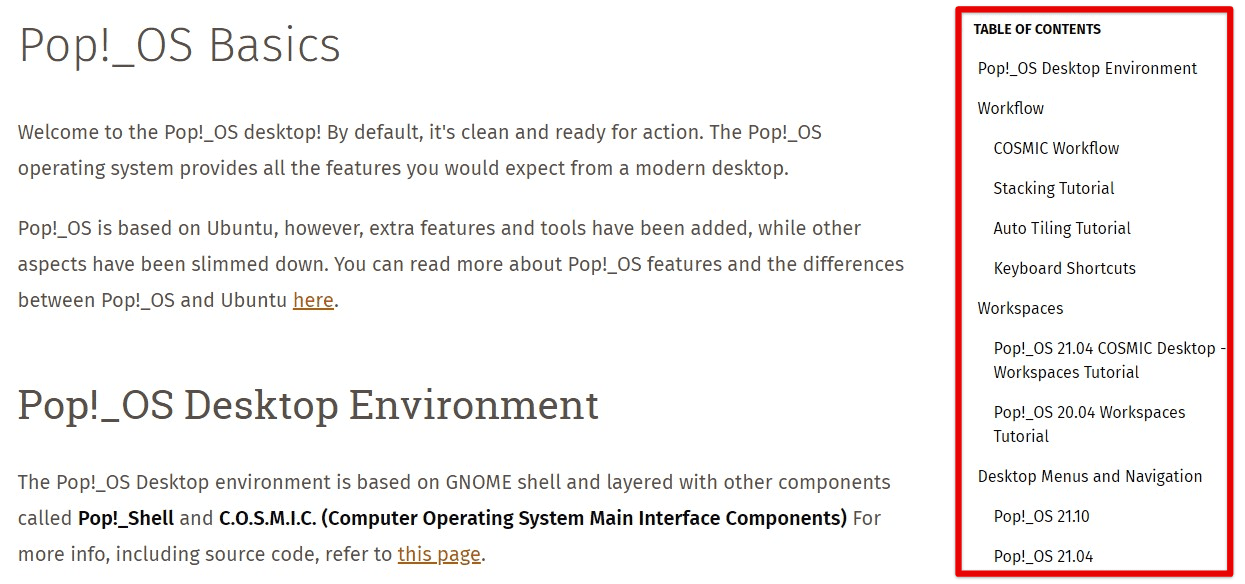
System documentation
For those looking to ask questions and seek help from other users, forums are the ideal place. They give you access to an active and supportive community where everyone can get help with their issues, share their experiences, and contribute to the community’s growth. Forums are moderated by knowledgeable and helpful individuals, ensuring that users receive accurate and reliable information at all times.
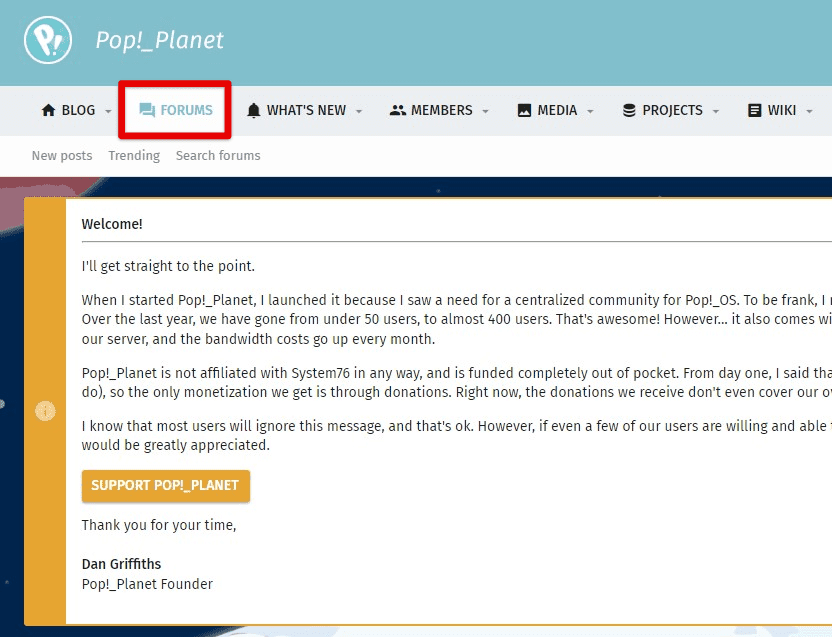
Pop!_OS forums
Apart from the official support channels, several third-party support resources are available. Reddit communities, such as r/pop_os, offer a platform to discuss user experiences, share tips & tricks, and ask questions. Similarly, social media groups serve as a space for community members to connect and engage with each other.
Pop!_OS system installation
Installing Pop!_OS is relatively easy, and the operating system provides users a friendly installation wizard. This section contains a step-by-step guide for installing Pop!_OS and addresses common installation issues.
Download the Pop!_OS ISO file from the official Pop!_OS website. Once downloaded, create a bootable USB drive with Etcher. Then plug the USB drive into the computer and restart it.
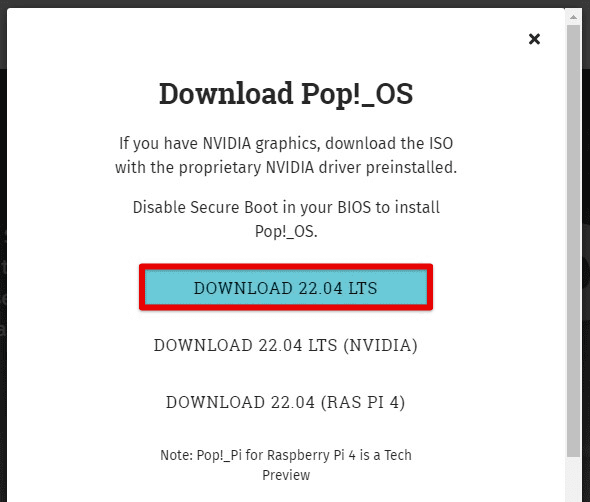
Downloading Pop!_OS ISO file
When the computer restarts, enter the boot menu and select the USB drive to boot from. This process can vary depending on the computer’s manufacturer, but it usually involves pressing a key such as F2 or F12 during startup. Once the computer boots from the USB drive, select the “Install Pop!_OS” option from the boot menu. The installation wizard will guide you through the installation process, which involves selecting the language, location, and keyboard layout.
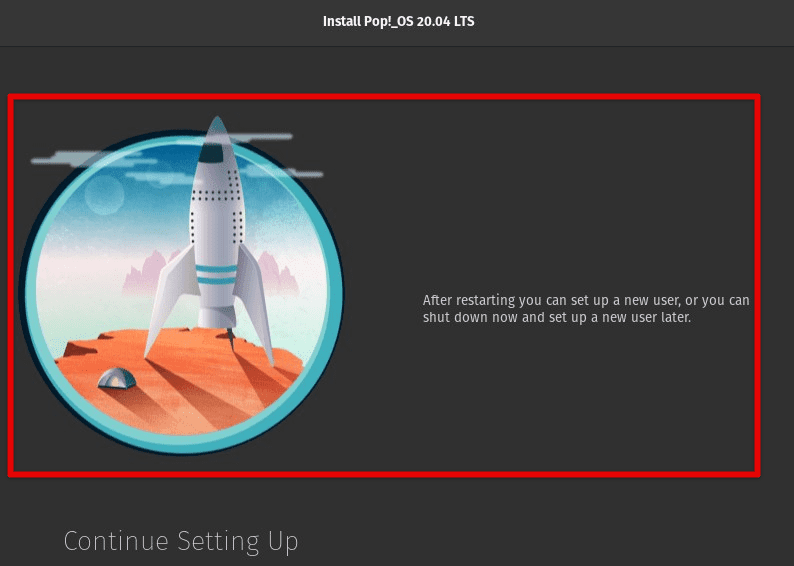
Pop!_OS installation wizard
You will then be prompted to select the installation type, either a clean installation or a dual-boot installation with another operating system. Next, choose the disk to install Pop!_OS and configure the partition settings.
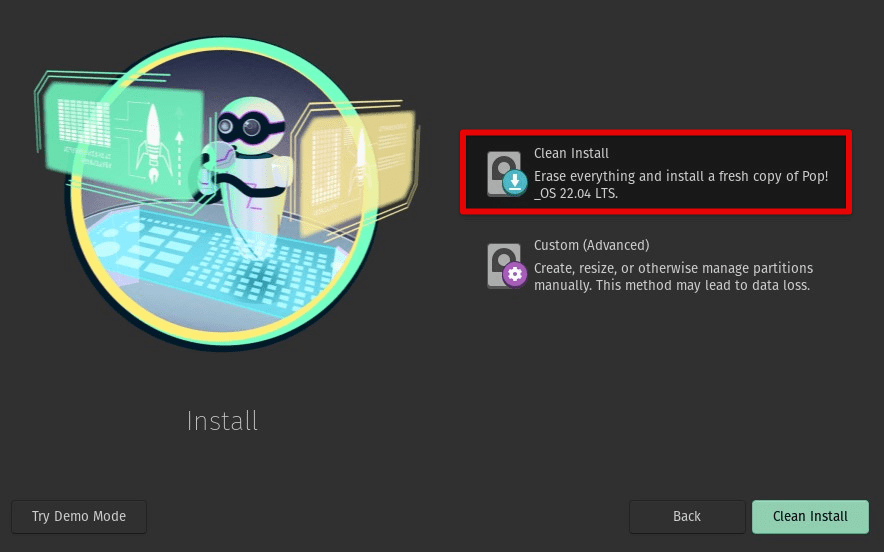
Selecting the installation type
Finally, create a user account, set the password, and wait for the installation process to complete. Once done, log in to the Pop!_OS desktop and start using the new operating system.
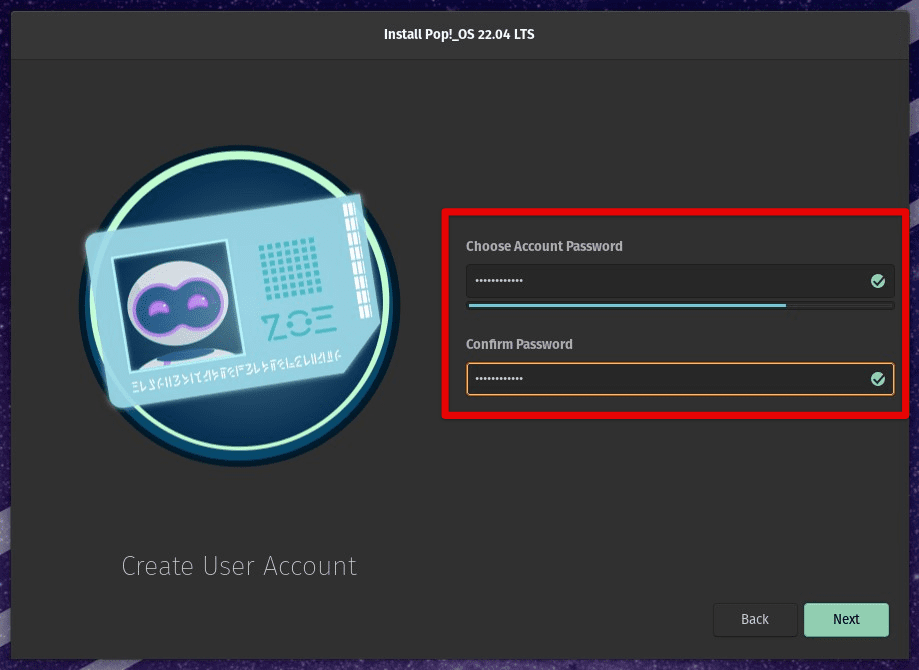
Creating a user account
Common installation issues may include problems with booting from the USB drive, partitioning the disk, and compatibility issues with specific hardware components. Troubleshooting these issues often involves checking the computer’s BIOS settings, ensuring the USB drive is formatted correctly, and verifying that the hardware components are compatible with Pop!_OS.
If you’re curious about Pop!_OS but don’t want to commit to a full install, running it on a virtual machine is a great option. Here is a guide for installing and using Pop!_OS on a virtual machine.
Customization
A key advantage of using Linux-based operating systems like Pop!_OS is the ability to customize the desktop environment to suit one’s preferences. This section will explore the customization options available in Pop!_OS and popular themes and extensions you may use to personalize the environment.
Pop!_OS works on the GNOME desktop environment by default, which offers a modern, streamlined interface. One can customize it using the GNOME Tweak Tool, available for download from Pop!_Shop. The GNOME Tweak Tool allows users to customize various aspects of the desktop environment, including appearance, behavior, and extensions. It lets you change the wallpaper, font, and icon theme and configure the dock and window settings.
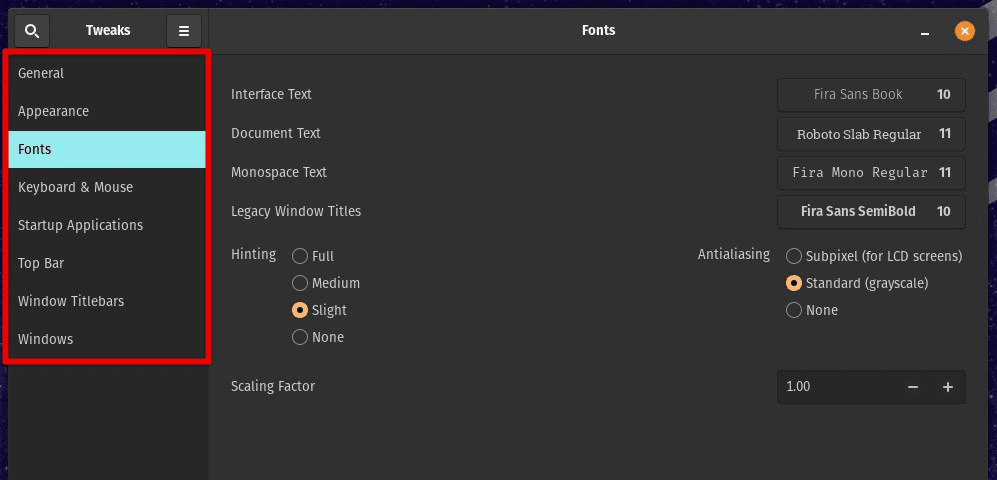
GNOME Tweak Tool
In addition to the GNOME Tweak Tool, users can download and install themes and extensions to customize their desktop environment further. Popular themes for Pop!_OS are Adapta and Arc, which offer a sleek and modern look, and the Papirus icon theme, which features colorful and vibrant icons.
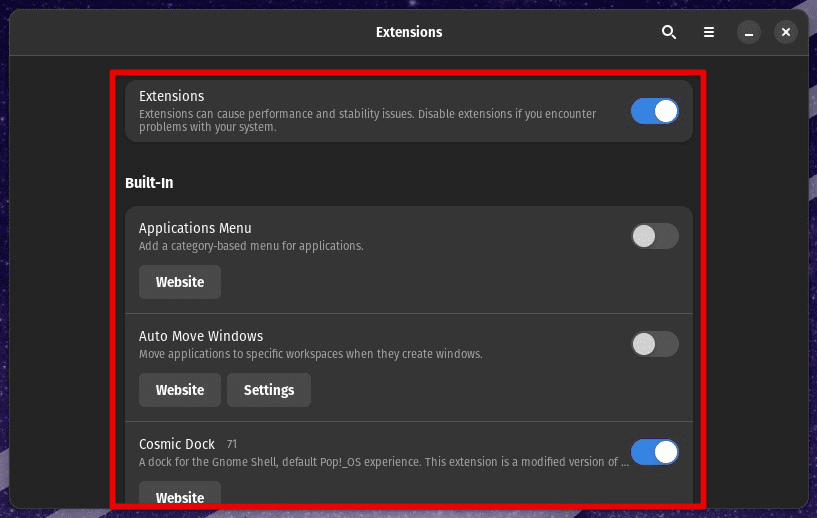
Pop!_OS extensions
You can also install extensions to add new functionality to the desktop environment. Popular extensions include Dash to Dock to configure and customize the dock and TopIcons Plus for adding system tray icons to the top bar. Pop!_OS delivers the ability to create custom keyboard shortcuts, which can be used to automate repetitive tasks and increase productivity. Here is our article on crafting custom keyboard shortcuts in Pop!_OS for a seamless workflow.
Pop!_OS software
Pop!_OS offers various software applications that can be installed to perform various tasks. This section provides an overview of the software available in Pop!_Shop and guides users on installing, updating, and managing these apps in Pop!_OS.
Pop!_Shop is the official software center for Pop!_OS and provides access to a curated selection of software applications. Use it to browse the available software categories or search for specific applications with the search bar.
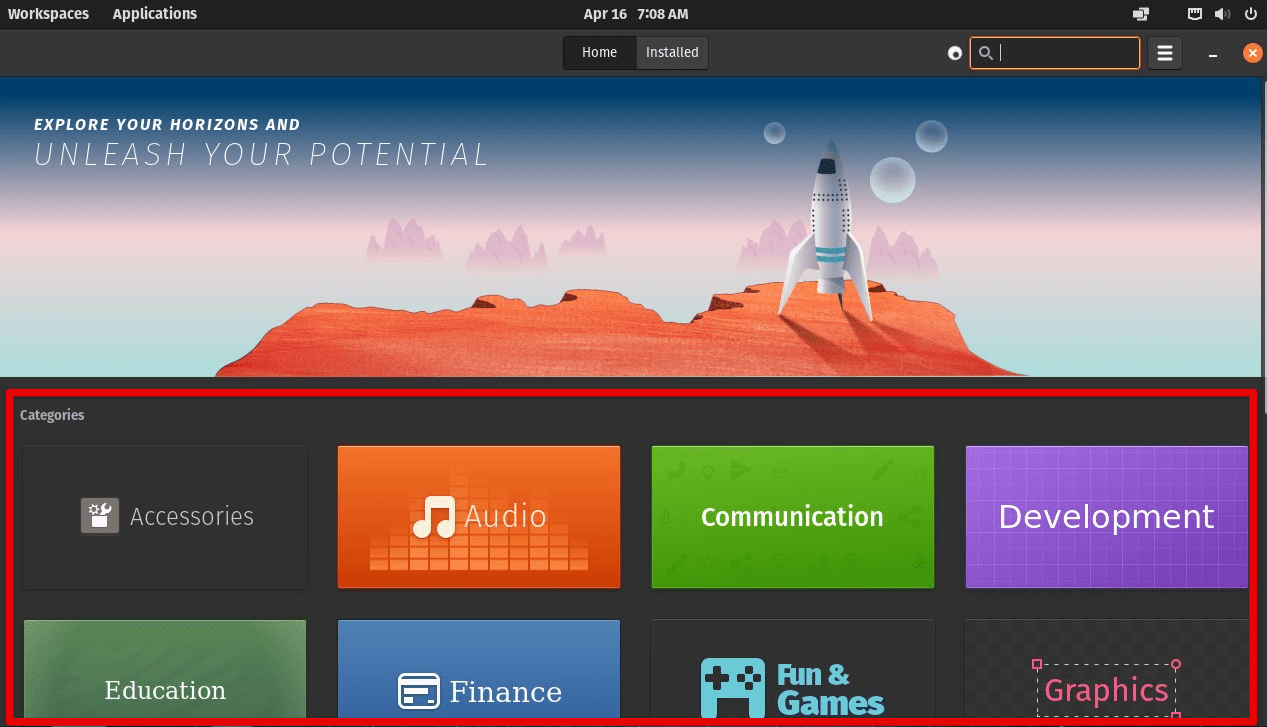
Exploring Pop!_Shop
Pop!_Shop software includes popular applications such as Firefox, LibreOffice, GIMP, games, development tools, and utilities. Pop!_Shop also features a selection of Flatpak and Snap packages, which are containerized applications that can be installed and updated independently of your OS.
To install software from Pop!_Shop, select the desired application and click the “Install” button next to it. You may need to enter the account password to confirm the installation. Once installed, the application will become available in the Applications menu.
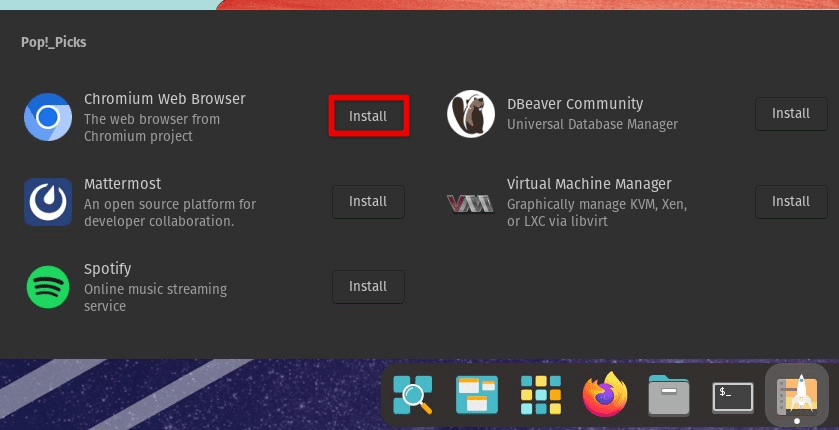
Installing an application from Pop!_Shop
To update the software in Pop!_OS, open Pop!_Shop and click the “Updates” tab. Any available updates will be listed here. Next, click the “Update All” button to update all installed software applications simultaneously. You can also do so from the terminal.
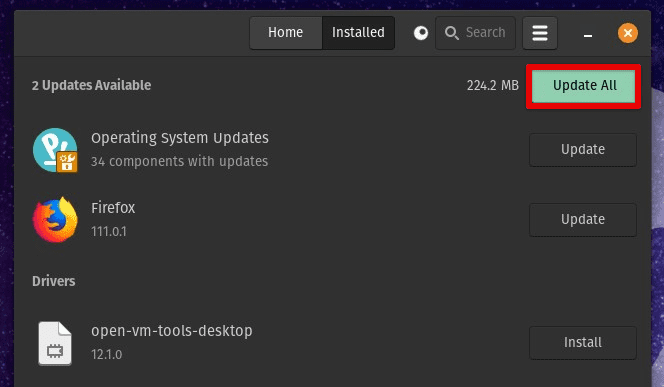
Updating software from Pop!_Shop
The terminal is also suitable for managing software in Pop!_OS. There is an APT package manager, a command-line tool that installs, removes, and updates software packages directly from the terminal window. Employ commands such as “sudo apt-get install firefox” to install new software and “sudo apt-get update” to update the package lists.
Linux users are always looking for new and innovative ways to manage and install applications on their systems. Here is the ultimate guide to using Flatpaks and Snaps on Pop!_OS.
Pop!_OS for development
This system has become popular among developers due to its powerful hardware support and pre-installed development tools. This section provides an overview of the development tools available in Pop!_OS and the programming languages and frameworks the system supports.
Pop!_OS comes with pre-installed development tools, including the GNU Compiler Collection (GCC), Make, and Git. These tools provide a foundation for developing software in Pop!_OS and are essential for building, compiling, and managing code repositories.
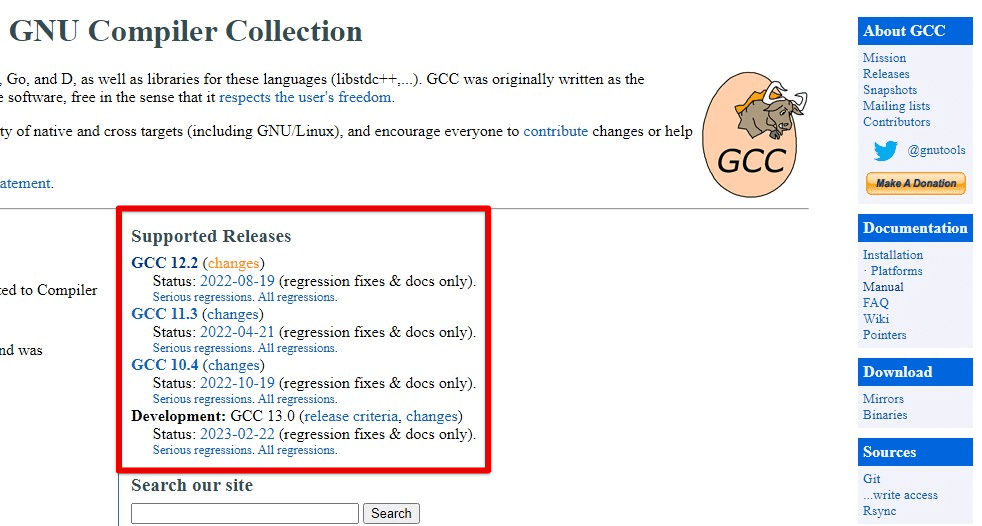
GNU Compiler Collection
In addition to the pre-installed tools, Pop!_OS has easy access to development environments like Visual Studio Code, Atom, and Sublime Text. These development environments offer many features and extensions to enhance productivity and streamline development.
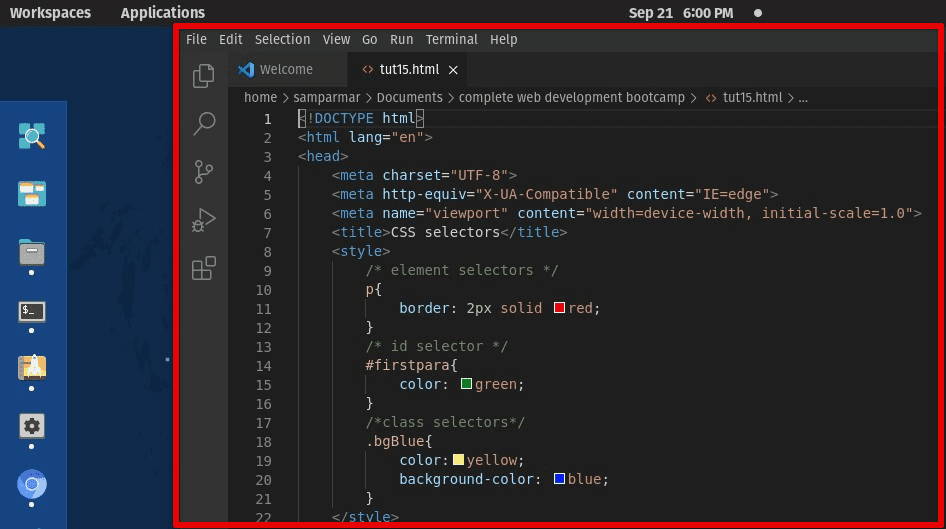
Visual Studio Code
Pop!_OS also supports various programming languages and frameworks. The operating system supports popular languages, including Python, Java, HTML, and C++. It is also possible to install additional language support through the terminal.
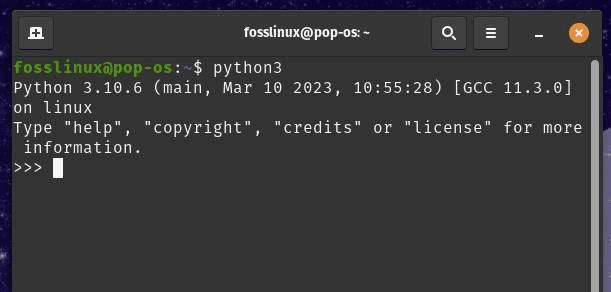
Python in Pop!_OS
There is the inherent support for web development for Node.js, React, and Ruby on Rails. The operating system also includes the Apache and Nginx web servers, widely used for hosting websites and applications. In machine learning and data science, there is stable support for TensorFlow, PyTorch, and scikit-learn. These libraries are essential for building and training machine learning models and analyzing data.
Hardware compatibility
Excellent hardware compatibility is one of the biggest advantages of any operating system. This section provides an overview of the hardware compatibility of Pop!_OS and how to resolve common hardware-related issues.
Pop!_OS is designed to work seamlessly with System76 hardware, including the company’s line of laptops, desktops, and servers. It also provides exceptional performance and compatibility with several third-party devices and boards. This system can be installed on a wide range of PCs and laptops from various manufacturers.
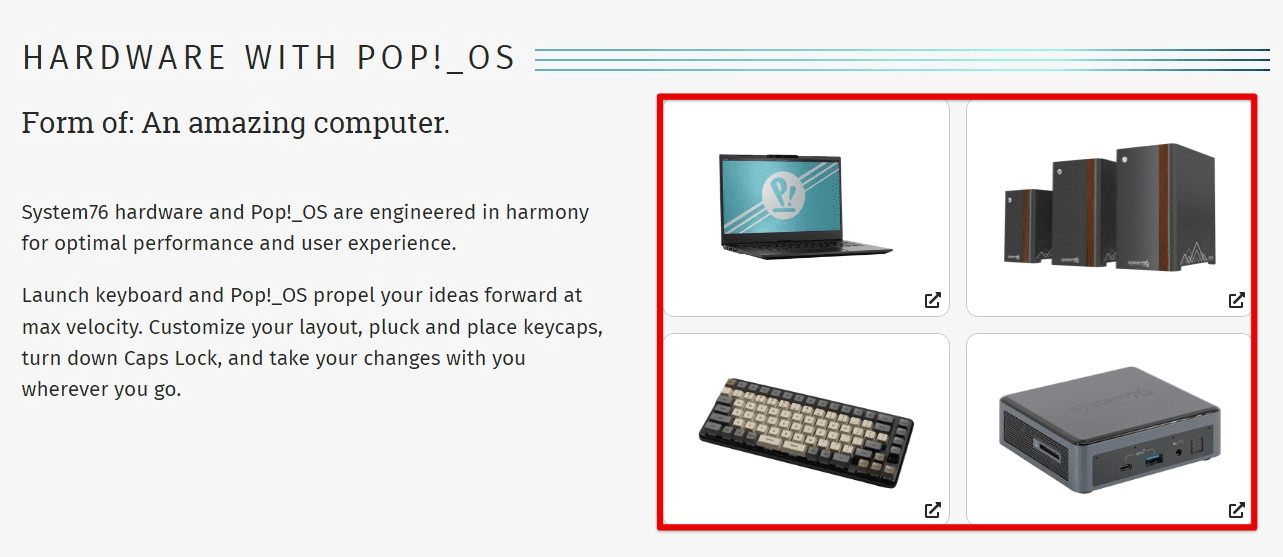
Hardware compatibility
There is support for graphics cards from Nvidia and AMD, providing out-of-the-box compatibility for the latest drivers and technologies. This makes it an excellent choice for gaming and graphics-intensive workloads. To ensure hardware compatibility, checking a list on the System76 website before installing Pop!_OS is essential. The compatibility list provides information on tested and verified hardware configurations for laptops, desktops, and servers. It is recommended only to select the listed hardware to maximize performance gains.
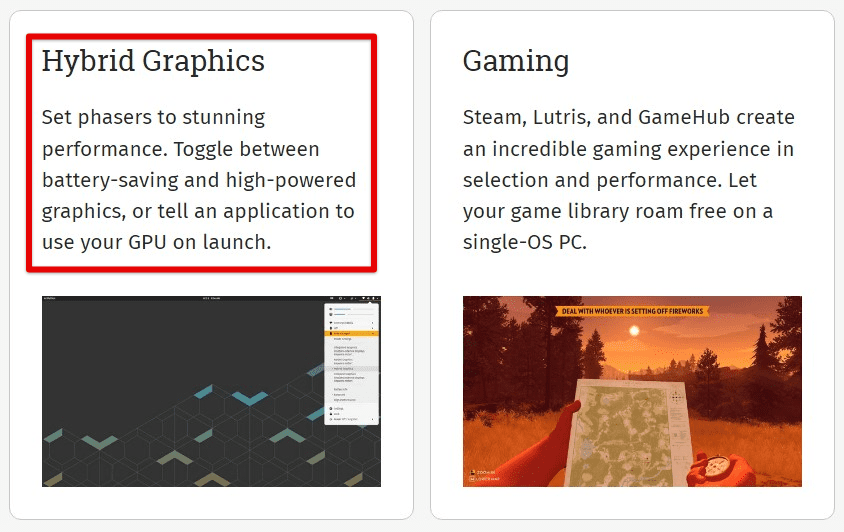
Graphics support
If you ever encounter hardware-related issues with Pop!_OS, the first step is to check the system logs and try diagnosing the problem yourself. This is done through the terminal or system log viewer application. Common hardware-related issues involve audio and networking faults, driver compatibility, and graphics.
These issues can often be resolved by updating the system and drivers to the latest version, installing additional software, or adjusting system settings as required. If you cannot do so, seek help from the online community or the System76 support team.
Community projects
Pop!_OS is a community-driven operating system that thrives on the contributions of its users. Below, we have overviewed community projects and initiatives in this community, as well as opportunities for users to contribute.
As described earlier, this operating system has one of the most active software development communities. It is entirely open-source, and its code is available for developers to contribute to on GitHub. The community-driven development model enables users to contribute to the development of the OS, adding new features, fixing bugs, and improving performance.
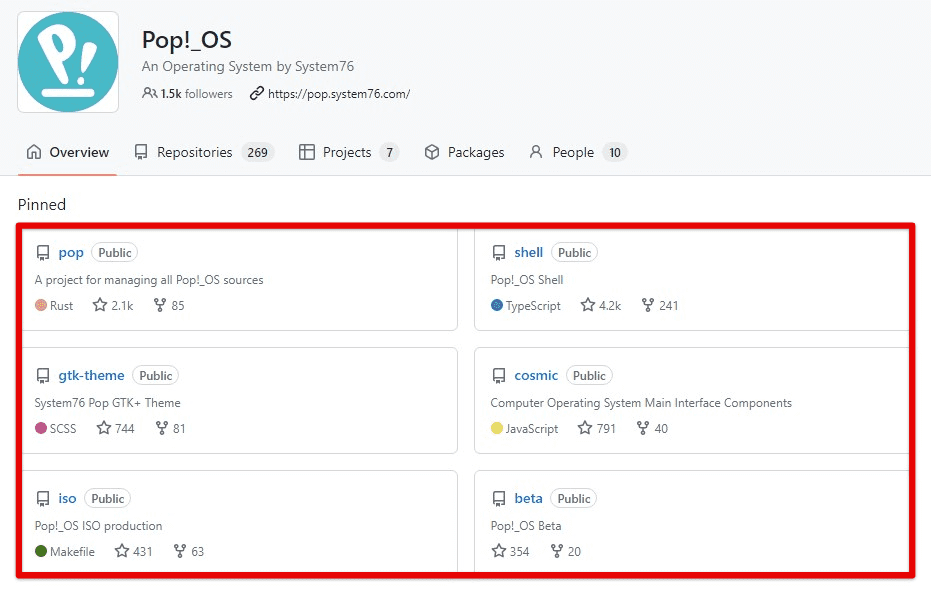
Pop!_OS source code
Besides software development, users support initiatives, forums, IRC channels, and media groups. The community support system has opportunities to interact with experienced users and receive support for OS-related problems. It is also an excellent place to find solutions for sharing experiences or simply connecting with like-minded individuals.
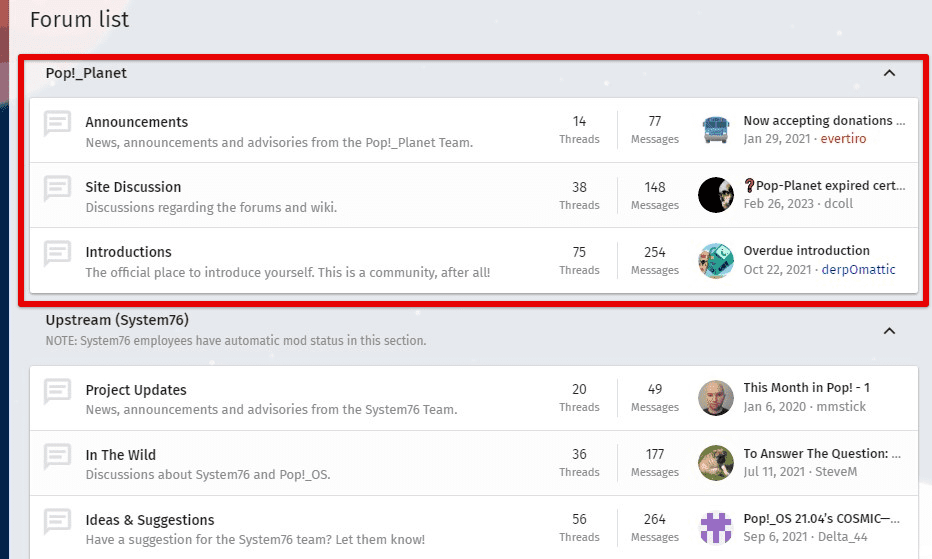
Community support system
Several community-driven projects aim to improve the user experience and add new features to the operating system. These projects include the development of new themes, extensions, and applications that integrate with the Pop!_OS desktop environment.
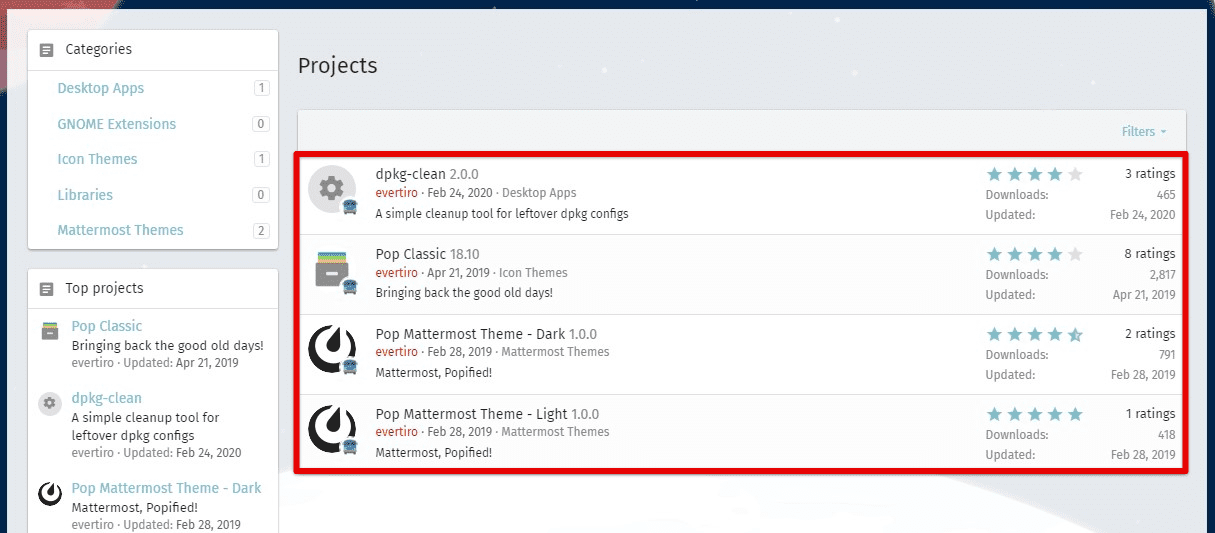
Pop!_OS community-driven projects
If you are interested in contributing to this community, there are many ways to get involved. The easiest way to do so is by reporting bugs and issues or writing code directly for the development team. Additionally, you can participate in different projects, such as theme and extension production, or provide support in improving the system’s documentation.
Conclusion
Pop!_OS is a powerful yet flexible distribution that has gained a dedicated user base thanks to its focus on customization and performance. Its community-driven development model and robust support system make it an excellent choice for everyone alike. This article explored various aspects of Pop!_OS, its history, features, customization options, software availability, and support resources. We have also examined how its community is organized, how users can get involved, and various projects contributing to its development.

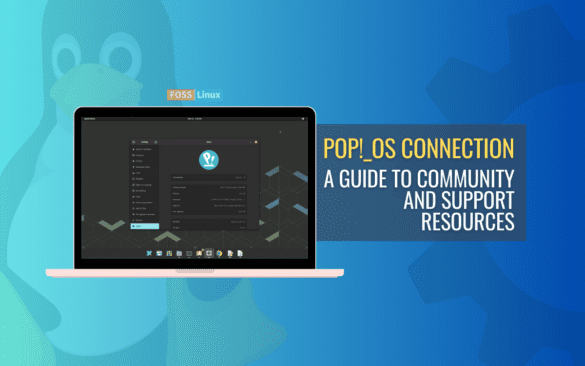
1 comment
You mention the community but neglect to even provide a hint of how to find it.